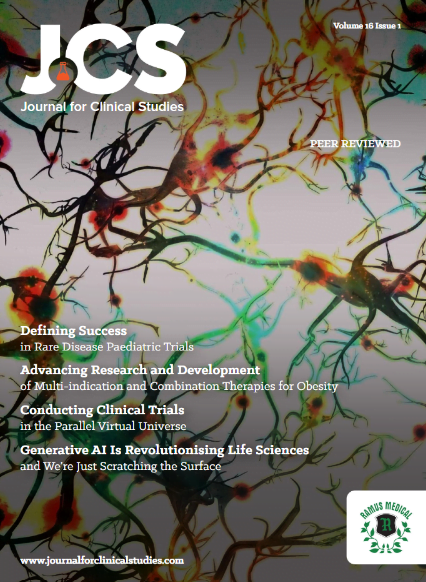A company formed as a spinout from Cancer Research UK-funded science at The Institute of Cancer Research, London, has been publicly launched, with $32.5 million in funding and a library of innovative anticancer compounds.
Monte Rosa Therapeutics – formed by Versant Ventures, The Institute of Cancer Research (ICR) and Cancer Research UK – aims to target cancer with new drugs that take advantage of ‘a cutting-edge concept in drug discovery’ called protein degradation.
This involves co-opting ubiquitin ligases – large cellular proteins involved in the natural degradation of cell products – to kill cancer-causing proteins that cannot be targeted by current drug types.
The company was actually formed in 2018 with the involvement of CR UK-funded ICR scientists Professor Ian Collins, the ICR’s head of Chemistry, and Professor Raj Chopra, formerly the ICR’s head of Cancer Therapeutics.
Having secured an initial $32.5 million of funding from its founding investor Versant Ventures, a healthcare venture capital firm, and New Enterprise Associates, the group plans to launch another round of financing to raise cash for clinical studies of some of its leading drug candidates.
One of its leading small-molecule compounds, MRT-048, was discovered by chemists in the CR UK Cancer Therapeutics Unit at the ICR, who also created the initial library of protein degraders.
Further research at the ICR as part of an ongoing collaboration between Monte Rosa, the ICR and CR UK has shown the potential of MRT-048 as a new breast cancer treatment.
CR UK and the ICR will receive milestones and royalties on future products discovered or developed under the collaboration with Monte Rosa.
“We’re delighted to have worked with Versant and world-class Cancer Research UK-funded scientists to help establish Monte Rosa, and it’s fantastic to see that Monte Rosa has attracted the support of leading venture capital firms to take it to the next stage,” noted Tony Hickson, chief business officer for Cancer Research UK.
“We’re pleased to be collaborating with Monte Rosa, where we will be using cutting-edge research to accelerate the development of potential new treatments for cancer patients.”















